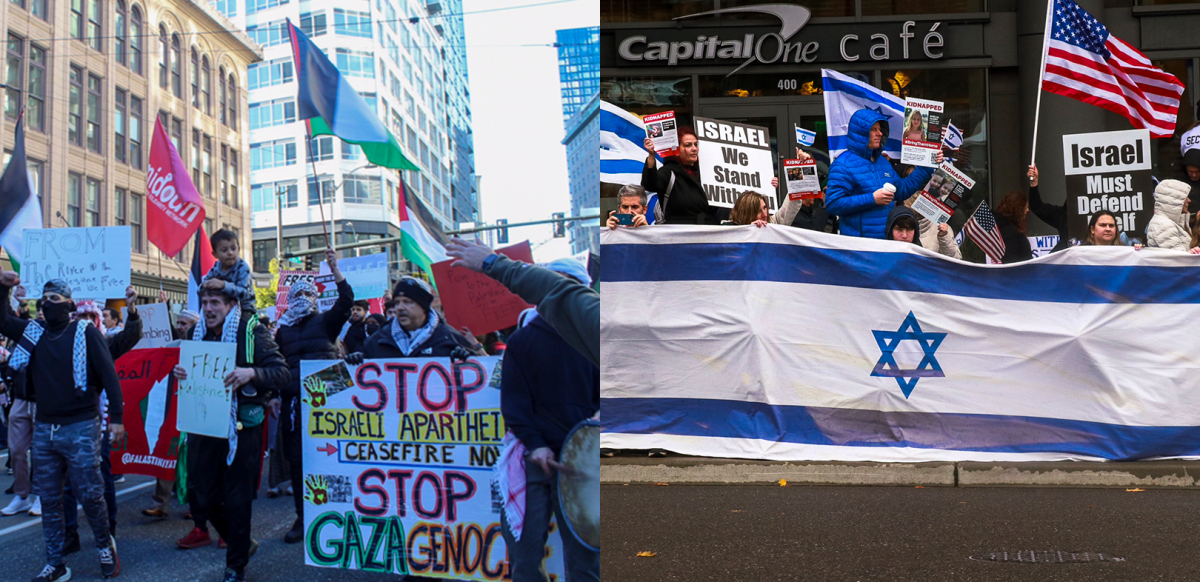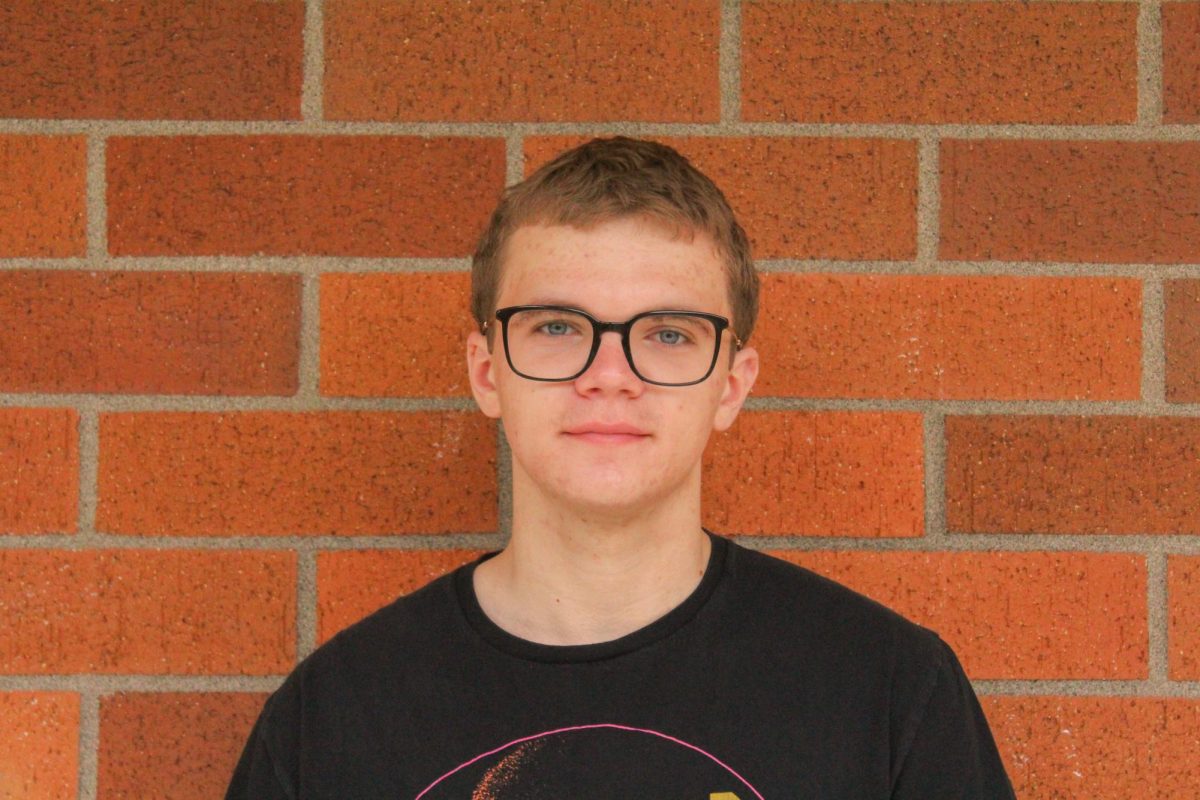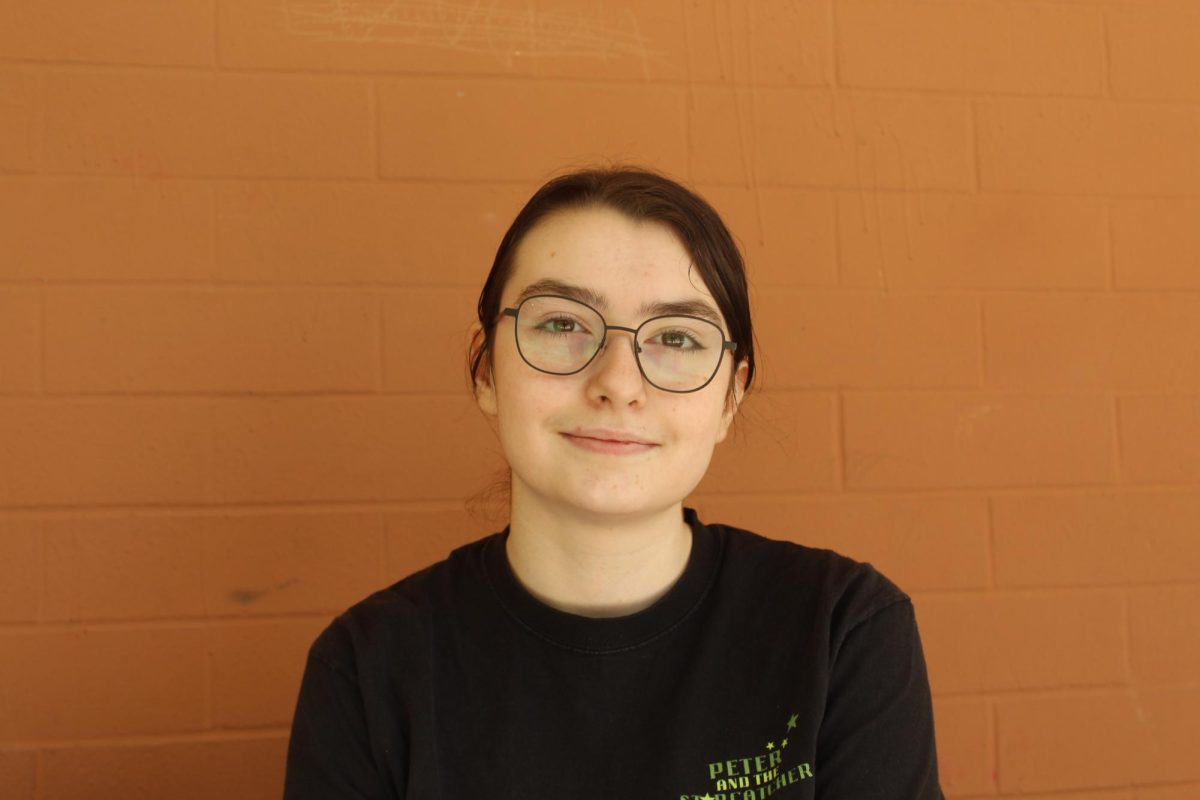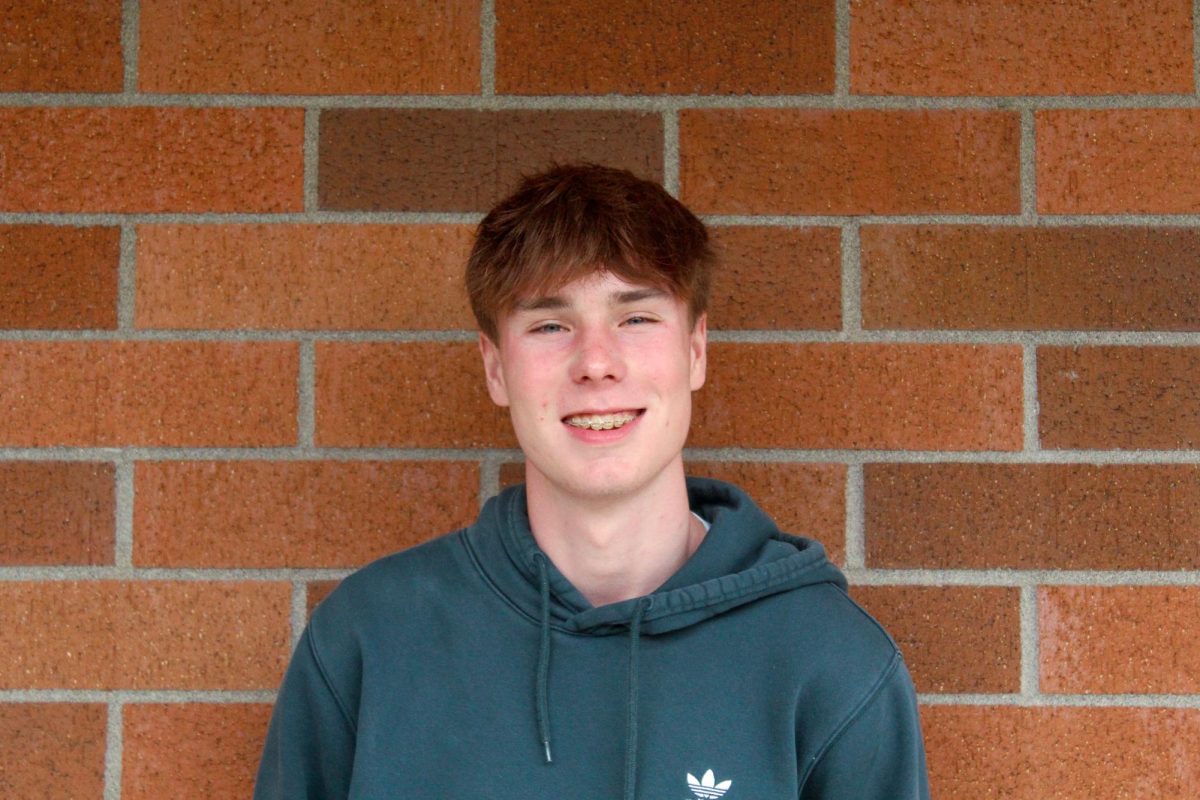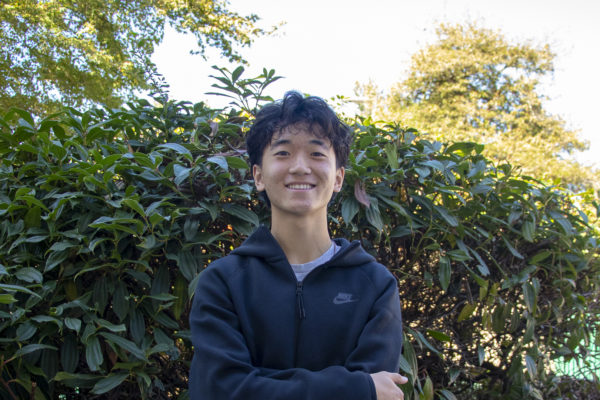Historical Context
Over 2000 members of the Palestinian militant group Hamas breached the security fence separating Israel from the Gaza Strip on Oct. 7, 2023 at 6:30 p.m., gunning down soldiers and civilians. At the same time, Hamas fired a barrage of missiles over the Gazan border into Southern and Central Israel. This marked the beginning of the 17th conflict in that region of the world since Israel became a nation in 1947.
This most recent war is a culmination of growing tensions and intermittent conflicts in the Palestinian region over thousands of years. IB Global Politics teacher Christopher McQueen (he/him) said that that history began when Rome conquered Jerusalem and forced Jewish people to disperse across the Afro-Eurasian landmass in 76 C.E. Up to that point, Jerusalem had been a holy city and cultural center for the Jewish people. After the Jewish people were spread across the globe, they faced antisemitism (prejudice against Jewish people).
“The Russians — the Tzars — had pogroms against Jews,” McQueen said. “In 1492, the Jews were driven out of Spain, and so on and so forth, culminating — obviously — in the Holocaust.” Pogroms are organized massacres carried out against a specific ethnic group.
Dr. Liora Halperin (she/her), a history professor at the University of Washington said these experiences built a collective desire among the Jewish people for a Jewish homeland, a desire that would eventually lead to Zionism.
“[Zionism] was a political movement that began in mainly eastern and central Europe in the late 19th century that believed that the best possible path forward for Jews in different countries around the world was to have the opportunity to establish a political entity of their own state,” Halperin said.
Muslims and Arabs first occupied the region — then known as Palestine — in the 7th century. It was around this time Muslims believe the Prophet Muhammad ascended to heaven in Jerusalem, resulting in the city becoming holy to Islam. In 1516, the Islamic Ottoman Empire, a nation uniquely tolerant of Judaism, took control of Palestine. This meant that while a Palestinian identity was being cultivated, many Jewish people were also migrating back to the Palestinian region. After World War I ended, Britain gained control over Palestine. This was problematic for the Palestinians since Britain, under the Balfour Declaration of 1917, supported the creation of a Jewish national homeland in Palestine. Over the next 30 years, Jewish influence grew in the region, increasing tensions. Halperin said that as World War II ended, the politics between Jews and Palestinians in the region began to change.
“The British decide to leave Palestine and the leaders of the Zionist movement use this opportunity to declare that they’re going to create the Jewish state in Palestine, and they’re supported in this via resolution by the United Nations to partition Palestine,” Halperin said.
Halperin further said how the decision to split Palestine into Israel — a Jewish state — and Palestine — an Arab state — had multiple consequences.
“Then regional war breaks out in the process of the leaders of the Zionist movement fighting to establish this state,” Halperin said. This conflict displaced about 700,000 Palestinians to neighboring nations.
Israel and its neighbors — Egypt, Jordan and Syria — have engaged in numerous conflicts since 1949. Two major conflicts include the Six-Day War and the Yom Kippur War. The Six-Day War ended with Israel occupying the Sinai Peninsula, the Gaza Strip and the West Bank. This is necessary context to understand the Yom Kippur War, in which Egypt and Syria launched a surprise, two-front attack on Israel on Oct. 6, 1973 — the holiest day of year for Jewish people — to reclaim lost territory. While this conflict ended with a moderate victory for Israel — Egypt did regain control of the Sinai Peninsula — Israel lost a sense of safety that hasn’t been recovered to this day. A series of clashes in the 1990’s and early 2000’s culminated in a confrontation between Hamas and Israel from May 7 to May 21, 2021.
The Current Conflict
Fatality and injury counts in the current war vary, but independent sources estimate that between 1,300 and 1,500 Israeli deaths occurred during the Oct. 7 attack, with at least 200 taken hostage and held in the Gaza Strip, the operational headquarters of Hamas. One target of this attack was the Nova music festival, where Hamas forces gunned down 260 civilians attending the event.
In a video message to the Israeli people the next day, Israeli Prime Minister Benjamin Netanyahu announced the beginning of a new conflict with Hamas.
“We are at war,” Netanyahu said. “Not in an operation, but at war.”
This announcement was backed up by an intensive aerial assault on the Gaza Strip by the Israeli military, declaring its purpose as wiping out Hamas forces in the area. Israeli airstrikes killed an estimated 7,028 Palestinians, including 2,913 children, between Oct. 7 and Oct. 26, according to the Hamas-ran Health Ministry in Gaza. Although doubts have been raised on the validity of these reports, organizations such as the United Nations Office for the Coordination of Humanitarian Affairs considered them broadly reliable. Additionally, the situation in Gaza has raised humanitarian concerns.
“What Israel has also done is it’s basically cut off, with very rare exceptions, the entry of almost all goods into the Gaza Strip,” said Halperin in an interview on Oct. 26. “They’ve allowed a few humanitarian convoys in with some very limited amounts of food, water and medicine, but at least, last I checked, they’re still not allowing fuel into the strip. It means that there is a very, very serious and worsening humanitarian catastrophe. 2.3 million people living without just the most basic necessities like fresh water and sanitation.”
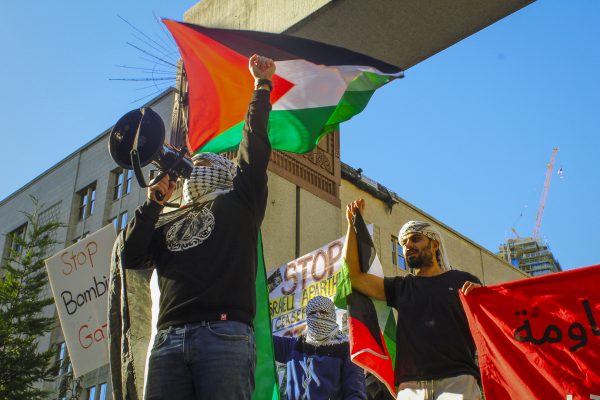
Seattle. (Lucas Talbot (he/him))
Communities in Seattle have felt the reverberations of the ongoing Israel-Palestine conflict. The Seattle Police Department increased security at mosques and synagogues after the Oct. 7 attack. Hundreds of people in support of Palestine marched the streets of Seattle, Washington, on Oct. 14. On the same day, the Iranian Community of the Greater Seattle area hosted a vigil with several members of the Jewish community to honor the lives lost in the conflict.
While both gatherings were peaceful, there have been instances of clashes. During an Oct. 12 protest at the University of Washington, supporters of Palestine and Israel engaged in verbal conflict.
As with other controversial topics, misinformation runs rampant across social media platforms, which is where 54% of teens get their information, according to a survey conducted by the nonprofit organization Common Sense Media.
In colleges around the nation, students have organized many protests revolving around this issue, but with these kinds of events comes disastrous misinformation. In response to a Pro-Palestine rally at University of Pennsylvania, social media users claimed that protestors were chanting, “We want Jewish genocide” and voicing their support for Nazi ideologies. However, the Anti-Defamation League disputed this; the students actually said, “Israel, Israel, you can’t hide: we charge you with genocide.”
McQueen said it is critical to be aware of the biases of each source, and how their perspective could potentially skew the accuracy of the information they present. For example, the United States and the European Union consider Hamas a terrorist organization, while to others — namely Iran and Egypt — it is a militant and political group that has made strategic decisions to free Palestine from Israel’s occupation. Furthermore, some nations don’t recognize Israel as a country and recognize the nationhood of Palestine, and vice versa.
McQueen advised students to be skeptical about information online, to seek out trustworthy sources and challenge their views with other perspectives. He also said that it is important to maintain perspective on the conflict, especially in regard to the groups involved.
“The greater picture is this: Hamas does not necessarily represent the Palestinian people, and what they do cannot be attributed to all Palestinians. The Israeli government and Defense Force does not represent all Israeli citizens, and certainly not all Jews. And what they do cannot be laid at the hand of all Jewish people, or all Israel.”



